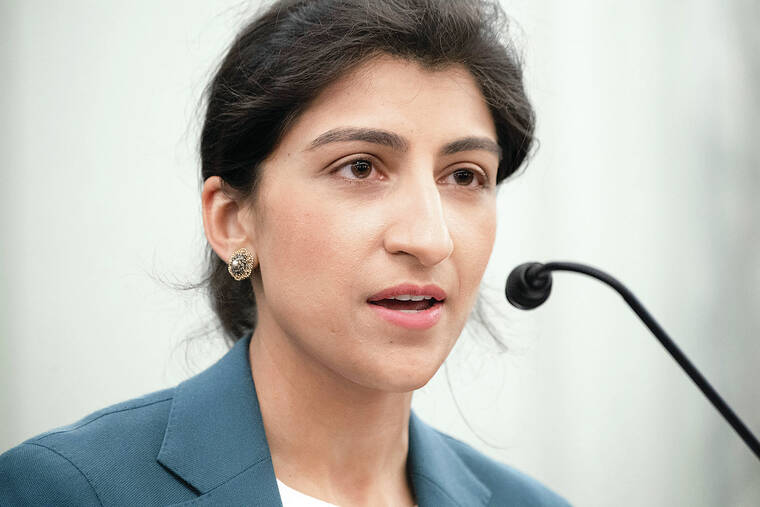FTC opens inquiry into Big Tech’s partnerships with leading AI startups
U.S. antitrust enforcers are opening an inquiry into the relationships between leading artificial intelligence startups such as ChatGPT-maker OpenAI and the tech giants that have invested billions of dollars into them.
The action targets Amazon, Google and Microsoft and their sway over the generative AI boom that’s fueled demand for chatbots such as ChatGPT, and other AI tools that can produce novel imagery and sound.
ADVERTISING
“We’re scrutinizing whether these ties enable dominant firms to exert undue influence or gain privileged access in ways that could undermine fair competition,” said Lina Khan, chair of the U.S. Federal Trade Commission, in opening remarks at a Thursday AI forum.
Khan said the market inquiry would review “the investments and partnerships being formed between AI developers and major cloud service providers.”
The FTC said Thursday it issued “compulsory orders” to five companies — cloud providers Amazon, Google and Microsoft, and AI startups Anthropic and OpenAI — requiring them to provide information about their agreements and the decision-making around them.
Microsoft’s years-long relationship with OpenAI is the best known. Google and Amazon have more recently made multibillion-dollar deals with Anthropic, another San Francisco-based AI startup formed by former leaders at OpenAI.
Google welcomed the FTC inquiry in a statement Thursday that also took a not-so-veiled dig at Microsoft’s OpenAI relationship and its history of inviting antitrust scrutiny over its business practices.
“We hope the FTC’s study will shine a bright light on companies that don’t offer the openness of Google Cloud or have a long history of locking-in customers – and who are bringing that same approach to AI services,” Google’s statement said.
Microsoft’s Rimy Alaily, a corporate vice president for competition and market regulation, also said the company looks forward to cooperating with the FTC and defended such partnerships as “promoting competition and accelerating innovation.”
Amazon, Anthropic and OpenAI declined comment.
OpenAI’s governance and its relationship with Microsoft came into question last year after the startup’s board of directors suddenly fired CEO Sam Altman, who was then swiftly reinstated, in turmoil that made world headlines. A weekend of behind-the-scenes maneuvers and a threatened mass exodus of employees championed by Nadella and other Microsoft leaders helped stabilize the startup and led to the resignation of most of its previous board.
The new arrangement gave Microsoft a nonvoting board seat, though “we definitely don’t have control,” Nadella said at Davos. Part of the complications that led to Altman’s temporary ouster centered around the startup’s unusual governance structure. OpenAI started out as a nonprofit research institute dedicated to the safe development of futuristic forms of AI. It’s still governed as a nonprofit, though most of its staff works for the for-profit arm it formed several years later.


